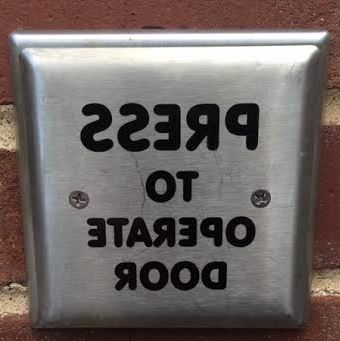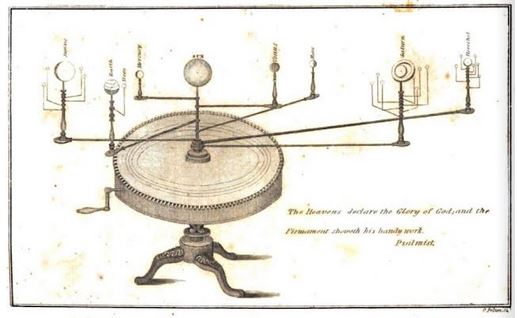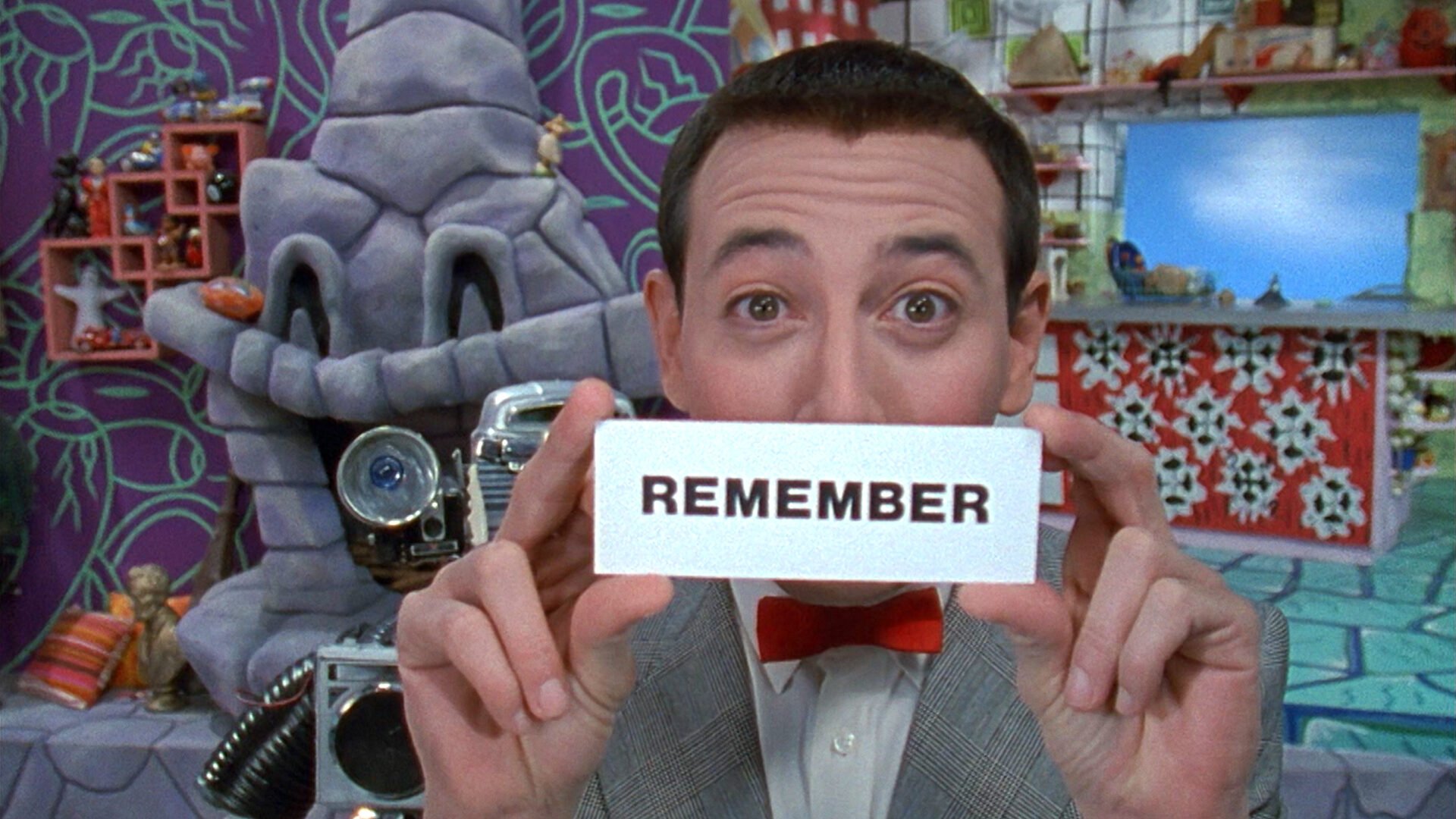Annual Report: 2023/2024.
 April 2023-Staff assembled in the conference room to mark the occasion of the 28th year of Freethinkers Anonymous and to try and answer the question, What are we doing here? There are a lot of excellent blogs out there on a wide variety of topics that, thankfully, are still going while others, sadly, have dropped off. If anything makes Freethinkers Anonymous distinctive it’s longevity. What started as a random assortment of jokes emailed to a distribution list has grown into something resembling an internet landfill. It predated and survived the dot-com boom and, like those early internet companies, has never had a plan, purpose, or profit. On this note everyone cheered and went back to work.
April 2023-Staff assembled in the conference room to mark the occasion of the 28th year of Freethinkers Anonymous and to try and answer the question, What are we doing here? There are a lot of excellent blogs out there on a wide variety of topics that, thankfully, are still going while others, sadly, have dropped off. If anything makes Freethinkers Anonymous distinctive it’s longevity. What started as a random assortment of jokes emailed to a distribution list has grown into something resembling an internet landfill. It predated and survived the dot-com boom and, like those early internet companies, has never had a plan, purpose, or profit. On this note everyone cheered and went back to work.
May 2023-Staff assembled in the conference room to mark the occasion of the 28th year of Freethinkers Anonymous before realizing we just did that, but since no one had gotten any work done in the last month everyone cheered and went back to work.
June 2023-Everyone remembered that every year there’s a vague plan to sample as many local milkshakes as possible to try and determine the best one. And every year an argument breaks out over what defines “local”. Or whether it should be limited to ice cream places since a lot of restaurants serve milkshakes. There was also a side discussion of how some years the plan is to sample every gyro to determine the best one in the area which would be a lot easier, and another side discussion of how to define “best” and a further side discussion of what the definition of “ersatz” is but no one could remember how that came up in the first place.
July 2023-Work was put on hold for the 4th of July. Also July 1st, since it’s Canada Day, and also the 2nd through 3rd of July, and everyone just called in sick from the 5th through 13th. Then everyone took off for Bastille Day, and planned to get back by July 20th, but that’s National Moon Walk Day, and the 21st is National Creme Brulee Day and of course everyone had to celebrate that, as well as the 26th which is National Coffee Milkshake Day, and finally everyone made a solemn vow to get back to work at the start of the next month.
August 2023-Toată lumea și-a amintit brusc că acum vreo douăzeci de ani ne-am propus să învățăm limba Romanian. Nimeni nu-și putea aminti de ce și, în loc să se întoarcă prin arhive, toată lumea a decis să se întoarcă la muncă.
September 2023-Side effects include swelling, brusing, pain or tenderness, itching, dizziness, fainting, blisters, lumps, hives, bee hives, drowsiness, headache, insomnia, autodidacticism, nocturnal cake baking, dehydration, foaming of the ears, hair growth on furniture, and spontaneous decomposition. Seek medical help immediately if you become ersatz.
October 2023-The staff Halloween party was such a great success it lasted the entire month. This year the theme was “Aposematism” and resulted in several people being hospitalized.
November 2023-Staff assembled in the conference room to discuss whether “No Shave November” should be celebrated. Everyone agreed that it should but that staff would only grow sideburns. This led to a discussion of why they’re called “sideburns” since no one wants burns on their face, not even on the sides. Large sideburns are also called “muttonchops” but this was considered problematic for vegans and causing potential copyright warnings from the estate of Shari Lewis. Staff finally unanimously agreed that from now on sideburns should be called “earbrows”.
December 2023-The preponderance of holidays in the month of December meant no one got any work done.
January 2024-Recovering from the preponderance of holidays in the month of December meant no one got any work done.
February 2024-Staff assembled in the conference room to begin the disassembly of a jigsaw puzzle everyone had been working on for over a year. This proved surprisingly challenging as no one could decide whether we should start from the center or go out or from a corner and work inward, and if we did go in from a corner which one should be start with? Finally everyone decided the best solution was to just flip the table over.
March 2024-Staff assembled in the conference room as Freethinkers Anonymous prepared to start its 29th year. The team leader reminded everyone he’d read something once about how the average life of a blog is three years and the realization that we’d almost but not quite gone ten times that put everyone in a somber mood. All things must come to an end, even things without a plan or purpose. And yet it was decided unanimously that Freethinkers Anonymous would go on for another year. On that note everyone cheered and went back to work.

 I just took that picture of flowers attached to a lamppost a few days ago but it’s not the first time I’ve seen flowers in that same spot. It’s near where my dentist is so I’ve seen flowers there before. I have a previous picture I took a year ago although, at the time, the flowers were looking a little shabby. They were plastic but still the elements had taken their toll. Why were they there, though? And this time they’d been freshened with a new more elegant cord wrapped around the lamppost. Someone’s keeping them up but who? It makes me sad to think this is probably a memorial, that someone died in that spot, or nearby, and someone who cared for that person, who loved them, is putting these flowers there as a tribute, and a way of dealing with their own grief.
I just took that picture of flowers attached to a lamppost a few days ago but it’s not the first time I’ve seen flowers in that same spot. It’s near where my dentist is so I’ve seen flowers there before. I have a previous picture I took a year ago although, at the time, the flowers were looking a little shabby. They were plastic but still the elements had taken their toll. Why were they there, though? And this time they’d been freshened with a new more elegant cord wrapped around the lamppost. Someone’s keeping them up but who? It makes me sad to think this is probably a memorial, that someone died in that spot, or nearby, and someone who cared for that person, who loved them, is putting these flowers there as a tribute, and a way of dealing with their own grief.


 When I heard
When I heard 
 I have a painting that was made by three artists. All three signed it but I wish I had a fourth signature: that of the person responsible for making it happen. His name was Rembert Parker.
I have a painting that was made by three artists. All three signed it but I wish I had a fourth signature: that of the person responsible for making it happen. His name was Rembert Parker.
 The death of Tony Dow a few months ago reminded me that, for as much as I claim to be an Edgar Allan Poe fan, I’ve never read one of his most famous stories, The Murders In The Rue Morgue. If you’re wondering how those things are connected you don’t know me very well because anyone who knows me just takes it as a given that my mind makes these bizarre leaps—and maybe yours does too, if you think about it, especially if you think about making bizarre leaps. Anyway there’s a throwaway line from an episode of Leave It To Beaver where Wally tells his younger brother—and I’m paraphrasing from a distant memory—“I’m reading this story called The Murders In The Rue Morgue. It’s pretty good. It would be even better if I didn’t have to read it for school.” The line gets the standard canned laughter to let viewers at home know it was supposed to be funny, but a lot of kids still, I’m sure, hear that and think, Yep, he’s right. It stuck with me too at the time I saw it because on the show, I think, Wally was in junior high and so was I, and, like him, I was getting my first introductions to Poe in school, although for me it was a really creepy recording of The Tell-Tale Heart that the teacher played because it was close to Halloween, and, in class textbook, The Cask Of Amontillado, and I liked them both so much I went to the library and read half a dozen other Poe stories—the horror ones, although I kind of fell off after The Fall Of The House Of Usher left me cold, and not in a good way. I’ve learned to appreciate it much more since then.
The death of Tony Dow a few months ago reminded me that, for as much as I claim to be an Edgar Allan Poe fan, I’ve never read one of his most famous stories, The Murders In The Rue Morgue. If you’re wondering how those things are connected you don’t know me very well because anyone who knows me just takes it as a given that my mind makes these bizarre leaps—and maybe yours does too, if you think about it, especially if you think about making bizarre leaps. Anyway there’s a throwaway line from an episode of Leave It To Beaver where Wally tells his younger brother—and I’m paraphrasing from a distant memory—“I’m reading this story called The Murders In The Rue Morgue. It’s pretty good. It would be even better if I didn’t have to read it for school.” The line gets the standard canned laughter to let viewers at home know it was supposed to be funny, but a lot of kids still, I’m sure, hear that and think, Yep, he’s right. It stuck with me too at the time I saw it because on the show, I think, Wally was in junior high and so was I, and, like him, I was getting my first introductions to Poe in school, although for me it was a really creepy recording of The Tell-Tale Heart that the teacher played because it was close to Halloween, and, in class textbook, The Cask Of Amontillado, and I liked them both so much I went to the library and read half a dozen other Poe stories—the horror ones, although I kind of fell off after The Fall Of The House Of Usher left me cold, and not in a good way. I’ve learned to appreciate it much more since then.